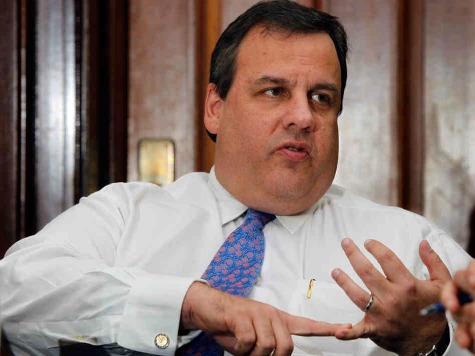
Governor Chris Christie’s deals to assure the pensions of public workers have put New Jersey’s economy in such danger of overspending that Moody’s Investor Service lowered the state’s economic outlook to “negative” this week.
The foreboding report suggested that New Jersey is currently in a “very weak liquidity position” caused by an imbalance between spending and income, reported the Star-Ledger this week. While giving Governor Christie credit for being “proactive,” the report also tears apart the state’s “sluggish” economic rebound and argues that it is consistently underwhelming at bringing in revenue. Another way of putting this is that New Jersey spends more money than it makes in a way that might be too unsustainable for its current credit rating.
New Jersey’s bonds remain at the same rating, however, at which they have been since 2011. This is the lowest rating in the country save for Illinois and California, achieved under the Jon Corzine administration but proven unable to rise during the Christie years.
Christie’s office rebuked the report, arguing that it was “flawed” and highlighting how November tax collections exceeded the expectations of the Christie Administration. It did not, however, highlight any decreases in spending that would allow the state to make more out of the money it takes in, because there are few such potential decreases. According to the Star-Ledger, Christie’s deal with lawmakers to increase the state’s contributions to public pensions have locked in the state’s budget for some years. Hence, Moody’s calls for a raise in taxes to make up for the corner into which the New Jersey legislature and the Christie administration have painted the state.
Moody’s had cited warning signs in New Jersey all year — most notably this summer, when a Census survey showed that one fourth of New Jersey millennials are living with their parents because of the economically infertile climate. New Jerseyans in general ended the year with a dire outlook on their economy, exit polls after this November’s gubernatorial election showing that seven in ten New Jersey residents believe the economy is worse off than it was four years ago. Despite this, the same poll showed two thirds of voters approved of Governor Christie’s handling of the economy. This may be because the raw statistics show that the Christie reign has seen increases in employment and business revenue. However, as Moody’s noted and a report by Bloomberg highlights, these increases are still among the slowest in the nation.
Governor Christie has refused to raise taxes in the state or raise the minimum wage by statute. He has also, however, engaged in the aforementioned negotiation to increase tax dollar amounts going into public pensions and given major corporations tax breaks for doing business in the state. Governor Christie has also criticized other economic conservatives, primarily Senator Rand Paul, for not balancing the budgets of their states when New Jersey sees the third-least amount of revenue come back to the state from federal taxes.
Whether the threat to downgrade the state will impact Governor Christie’s popularity remains to be seen. The economy of his state has certainly not garnered the most headlines for the governor this month, however. Nationally, Governor Christie is seen as the frontrunner in the 2016 race, even edging out Hillary Clinton in Iowa polls. The panic among Democrats has led to a concerted effort to turn a Port Authority flap involving the closing of lanes of the George Washington Bridge in Fort Lee into a full-blown scandal.

COMMENTS
Please let us know if you're having issues with commenting.